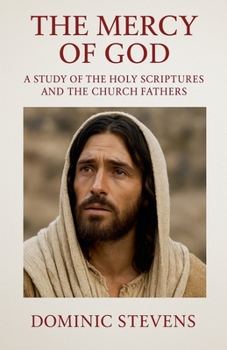The Mercy of God: A Study of the Holy Scriptures and the Church Fathers
This comprehensive study examines the theological concept of divine mercy as it unfolds throughout the biblical narrative and Christian tradition. Drawing on exegetical analysis of primary texts, patristic commentary, and contemporary theological discourse, the work traces the developmental arc of mercy as a fundamental divine attribute from creation through eschatological fulfillment. The author advances the thesis that mercy constitutes not merely an occasional divine action but the essential characteristic of God's relationship with creation-the golden thread that unifies seemingly disparate biblical narratives into coherent testimony to divine character.
Beginning with linguistic analysis of key Hebrew terms (hesed, rachamim) and their Greek counterparts (eleos), the study establishes the multifaceted nature of biblical mercy as simultaneously covenant faithfulness, visceral compassion, and restorative action. Through careful examination of pivotal biblical events-creation, exodus, exile, incarnation, crucifixion, and resurrection-the author demonstrates how divine mercy operates as both interpretive lens and central content of salvation history.
This groundbreaking volume will appeal to scholars in biblical studies, systematic theology, and ethics while remaining accessible to clergy, spiritual directors, and educated laypersons seeking deeper understanding of this central yet often neglected theological concept. In an age marked by polarization, violence, and indifference to suffering, this timely work recovers the transformative power of divine mercy as both theological truth and ethical imperative for contemporary religious and social renewal.





